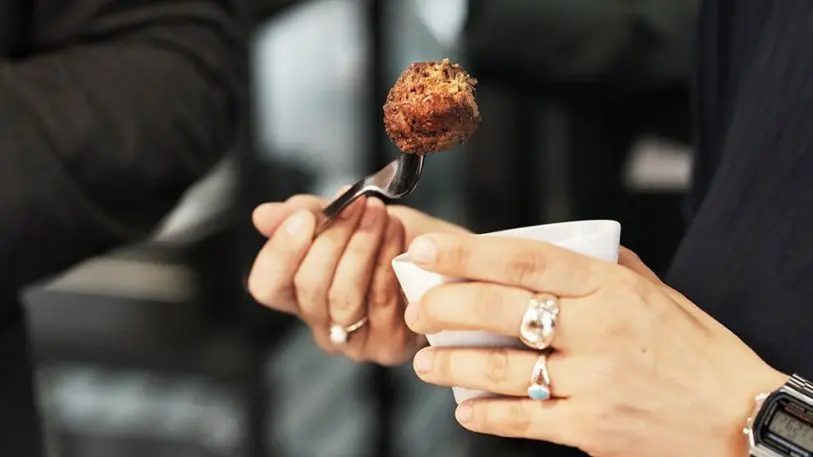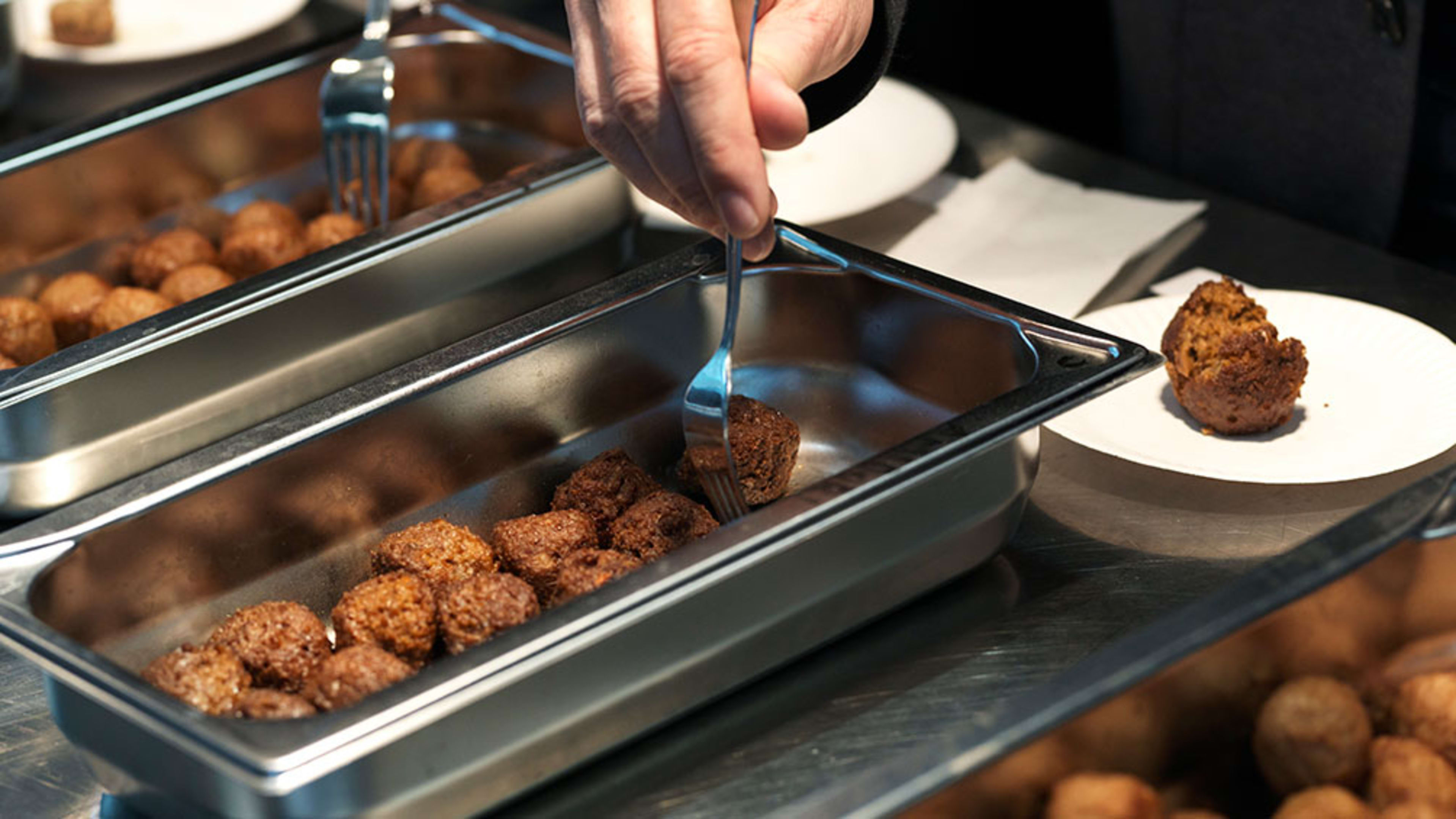In a year, Ikea sells roughly a billion meatballs. Along with the Billy bookcase, the food is one of the company’s most iconic products. But it plans to soon begin selling an increasing number of “meatballs,” made from plants rather than beef and pork.
The company launched a veggie ball–one that is visibly made from vegetables–in 2014. But the new meatless meatball in development now will follow the path of other products, like the Impossible Burger, designed to mimic meat so closely that they might be mistaken for the real thing.
“What we would like to do is to create an alternative for the typical meat eater that still has a craving for meat,” says Michael La Cour, managing director at Ikea Food Services. “Let’s say, a flexitarian that knows too much meat consumption is not always the best, and I want to do my part, but on the other hand, I love the taste and texture of meat. These are the people that we would like to create an alternative for.”

For the company, it’s part of a larger push toward sustainability that involves everything from new electric delivery vans to experiments with renting furniture that it can take back, fix up, and resell to help customers avoid putting more products in landfills. With 680 million customers buying food, the company’s in-store restaurants are in themselves a major chain, and the team realized that it needed to carefully consider what it chooses to serve.
“We have a responsibility to offer alternatives that are more sustainable longterm alternatives to meat,” he says. “I think that’s quite clear with a company that has signed up to the Paris accord. You have to focus on developing alternatives to meat just from the pure fact that if you take the meat industry as a whole, it’s [one of the largest sources] of greenhouse gas emissions.”
Demand for plant-based food continues to grow from consumers–many of whom may still eat meat, but consider themselves flexitarian–and that’s leading to widespread shifts to new products throughout the food industry. “We firmly believe that it is the case that we are really in a very exciting time for the entire food business,” says La Cour. “It’s really being reshaped completely from what it was.”
Ikea is working with two other companies to develop potential versions of the new meatball (La Cour won’t name the suppliers). The goal, he says, is a food so delicious that a meat-eater like himself would want to pick one off a plate and eat it without sauce. “I would say at this point we’re getting awfully close,” he says. “It really has to be delicious. When it’s delicious, and a person that really enjoys meat feels this is great–it’s just a great product–that’s when we move masses. That’s when we get into the numbers that matter. So that has to be the aim.”
The company plans to offer the product at a price equal to or less than its regular meatballs, because that’s another key to making it widely adopted. And it will continue to develop other new plant-based alternatives for its menu. “I firmly believe that it’s wrong to call this a trend or a fad or anything like that,” says La Cour. “I think on a permanent basis we will see a transformation of meat consumption.” Even in the parts of the world where the company sees that meat consumption is increasing, younger generations are increasingly interested in plant-based food, he says. “I think as understanding goes up in terms of what it means for the CO2 footprint, what it means for the water consumption footprint, and as we can see our environment change, I’m convinced that that will just increase the demand for these products.”
Ikea still plans to sell its meat-based meatball for the foreseeable future, and La Cour doesn’t expect meat to disappear from menus soon. But sales will shift. “Do I see a future without any meat? That depends on how far we want to look ahead. I don’t see that in the immediate future. Even in a 10-year range, I still think people will eat meat. But I think they’ll eat dramatically less.”
Recognize your brand’s excellence by applying to this year’s Brands That Matter Awards before the early-rate deadline, May 3.
